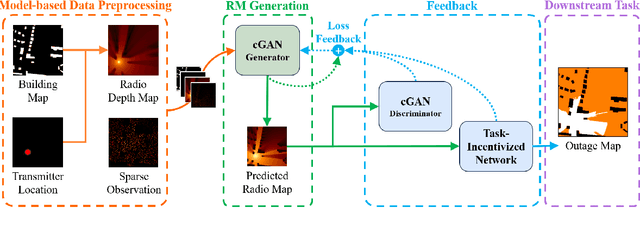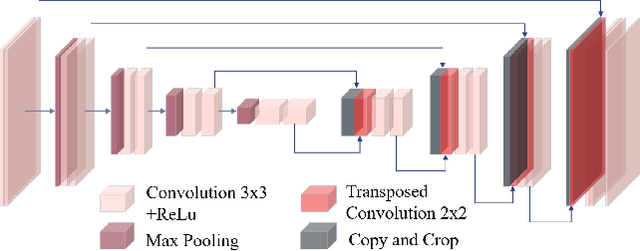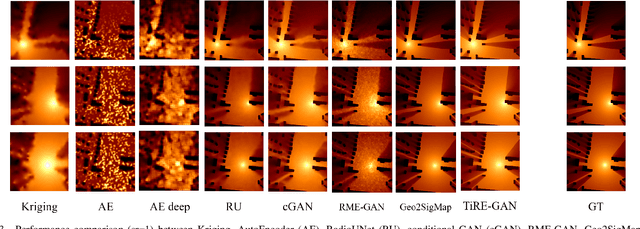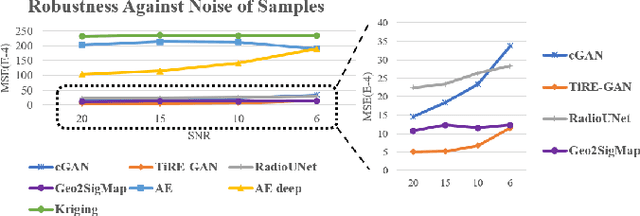Yueling Zhou
Efficient Transmission of Radiomaps via Physics-Enhanced Semantic Communications
Jan 18, 2025



Abstract:Enriching information of spectrum coverage, radiomap plays an important role in many wireless communication applications, such as resource allocation and network optimization. To enable real-time, distributed spectrum management, particularly in the scenarios with unstable and dynamic environments, the efficient transmission of spectrum coverage information for radiomaps from edge devices to the central server emerges as a critical problem. In this work, we propose an innovative physics-enhanced semantic communication framework tailored for efficient radiomap transmission based on generative learning models. Specifically, instead of bit-wise message passing, we only transmit the key "semantics" in radiomaps characterized by the radio propagation behavior and surrounding environments, where semantic compression schemes are utilized to reduce the communication overhead. Incorporating the novel concepts of Radio Depth Maps, the radiomaps are reconstructed from the delivered semantic information backboned on the conditional generative adversarial networks. Our framework is further extended to facilitate its implementation in the scenarios of multi-user edge computing, by integrating with federated learning for collaborative model training while preserving the data privacy. Experimental results show that our approach achieves high accuracy in radio coverage information recovery at ultra-high bandwidth efficiency, which has great potentials in many wireless-generated data transmission applications.
TiRE-GAN: Task-Incentivized Generative Learning Models for Radiomap Estimation with Radio Propagation Model
May 04, 2024



Abstract:Enriching geometric information on radio frequency (RF) signal power distribution in wireless communication systems, the radiomap has become an essential tool for resource allocation and network management. Usually, a dense radiomap is reconstructed from sparse observations collected by deployed sensors or mobile devices, which makes the radiomap estimation an urgent challenge. To leverage both physical principles of radio propagation models and data statistics from sparse observations, this work introduces a novel task-incentivized generative learning model, namely TiRE-GAN, for radiomap estimation. Specifically, we first introduce a radio depth map as input to capture the overall pattern of radio propagation and shadowing effects, following which a task-driven incentive network is proposed to provide feedback for radiomap compensation depending on downstream tasks. Our experimental results demonstrate the power of the radio depth map to capture radio propagation information, together with the efficiency of the proposed TiRE-GAN for radiomap estimation.
 Add to Chrome
Add to Chrome Add to Firefox
Add to Firefox Add to Edge
Add to Edge